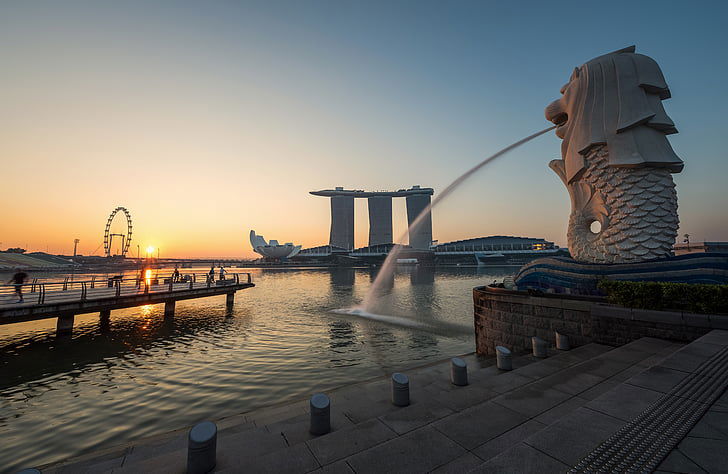How to Plan the Perfect Business Trip to the Lion City
Singapore is a nation that is known for luxurious living, a gorgeous skyline, and iconic landmarks. Both business people as well as fun lovers grace the shores of Singapore hoping to have a wonderful time. People often visit the county for bleisure because of the capabilities and modern amenities that Singapore offers to accommodate both activities. When choosing a location to carry out a business deal or to hold an important meeting, you can’t go wrong with choosing the Lion City. This guide will tell you exactly how to plan the perfect business trip to Singapore.

img via pickpik
Get Acquainted with Singapore’s Business Culture
Singaporean businessmen are usually known for their efficiency, punctuality, and professionalism, which are core values in the local business environment. Meetings are typically formal and focused on achieving results. Ensure you are appropriately attired for the meeting at hand. Ideally, business suits for men and professional attire for women are standard. It’s also important to understand that building relationships happen gradually through professional channels, not personal connections.
Plan Your Itinerary Efficiently
Singapore’s public transportation system is fast and reliable. Use the MRT or taxis to get around, but always factor in potential delays during peak hours. To make the most of your time, group your meetings based on location to minimize travel time. Planning your day around business districts will help you maximize productivity. Though your business trip will focus on meetings and work, make sure to carve out time for leisure. This will greatly reduce your stress and increase efficiency. Singapore’s top attractions, like Gardens by the Bay, Marina Bay Sands, and the Singapore Flyer, offer a perfect break from your busy schedule. You can also explore Chinatown for its rich history, busy marketplaces, and excellent food options.
Choose the Right Hotel Stay in Singapore
The right hotel can make a huge difference to your business trip. If you’re looking for comfort, convenience, and easy access to Singapore’s business districts, Mercure ICON Singapore City Centre, among others, is an excellent choice. You should opt for a hotel stay in Singapore that is located ideally between Chinatown and the Central Business District (CBD), putting you in close proximity to meetings, restaurants, and cultural attractions.
Stay Connected
Being connected at all times is crucial during any business trip. Many high-class hotels and resorts offer high-speed internet access so that you can manage emails and video conferences. However, you may also want to buy a local SIM card or activate international roaming to ensure seamless communication.
Explore Dining Options
Singapore’s culinary scene is world-renowned, and no trip would be complete without sampling some local dishes. While the hotel offers excellent dining options, be sure to check out the many food stalls and street food corners in Chinatown and nearby districts. From Hainanese chicken rice to chilli crab, these local delicacies will enhance your cultural experience and make for great conversation starters in meetings.
Understand Local Etiquette
Being on time is one key to getting local businessmen to take you seriously. Arriving late to a meeting is seen as unprofessional, and your first impression may not be too good. Be sure to exchange business cards with both hands as a sign of respect. Familiarising yourself with these small cultural practices will make your business interactions smoother and more effective.
Prepare for the Climate
Singapore’s tropical climate all year means high humidity and warm temperatures. Dress in light, breathable clothing to stay comfortable, and always carry an umbrella in case of rain. This will ensure you're ready for unpredictable weather, keeping you at your best during meetings. If your hotel is nearby, you can always stop to freshen up as well. Never underestimate the value of appearing fresh.
Currency and Payment
The local currency is the Singapore Dollar (SGD), but credit cards are widely accepted at hotels, restaurants, and shops. It's a good idea to have some cash on hand for small purchases or in case you visit establishments that don’t accept cards.
